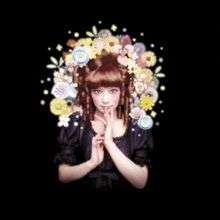Shōso Strip
| "Shōso Strip" | ||||
|---|---|---|---|---|
 | ||||
| Studio album by Ringo Sheena | ||||
| Released | March 31, 2000 | |||
| Recorded |
Studio Terra Kame-chan Studio | |||
| Genre | ||||
| Length | 55:55 | |||
| Label | Toshiba EMI | |||
| Producer | Uni Inoue | |||
| Ringo Sheena chronology | ||||
| ||||
| Singles from Shōso Strip | ||||
|
||||
Shōso Strip (勝訴ストリップ, "Lawsuit Winning Strip") is Ringo Sheena's second album, released on March 31, 2000, by Toshiba EMI. The limited edition version includes a special booklet and case. The album debuted at #1 and has sold over 2,332,000 copies. It was certified two million copies by the RIAJ.[1]
Background
Sheena began to record Shōso Strip from the summer of 1999. Since she thought that the track list was almost the same as Muzai Moratorium, she started with a clean slate. There were several songs which were not recorded because of the busy, but had been completed in her head. She decided to record those new songs and replaced some songs of the album with them. The recording was finished along with the summer after all.
In 2012, the song "Tsuki ni Makeinu" was covered by Nanou on his album Unsung.
Awards
- Japan Gold Disc Award "Rock Album of the Year" (日本ゴールドディスク大賞「ロック・アルバム・オブ・ザ・イヤー」)
- Japan Record Award "Best Album prize" (日本レコード大賞「ベストアルバム賞」)
Track listing
All tracks written by Ringo Sheena, arranged by Seiji Kameda and Ringo Sheena.
| No. | Title | Length |
|---|---|---|
| 1. | "Kyogen-shō" (虚言症 "I Am a Liar") | 5:26 |
| 2. | "Yokushitsu" (浴室 "Bathroom") | 4:15 |
| 3. | "Benkai Debussy" (弁解ドビュッシー "Excuse Debussy") | 3:16 |
| 4. | "Gips" (ギブス "Gips") | 5:38 |
| 5. | "Yami ni Furu Ame" (闇に降る雨 "A Driving Rain in Darkness") | 5:03 |
| 6. | "Aidentitī" (アイデンティティ Identity) | 3:05 |
| 7. | "Tsumi to Batsu" (罪と罰 "Crime and Punishment") | 5:32 |
| 8. | "Sutoishizumu" (ストイシズム Stoicism) | 1:46 |
| 9. | "Tsuki ni Makeinu" (月に負け犬A Broken Man and Moonlight[2]) | 4:14 |
| 10. | "Sakana" (サカナ "Tidbits"[3]) | 3:43 |
| 11. | "Byōshō Public" (病床パブリック "Sickbed Public") | 3:16 |
| 12. | "Honnō" (本能 "Instinct") | 4:14 |
| 13. | "Izon-shō" (依存症 "I Am an Addict") | 6:23 |
Credits and personnel
|
|
Notes
- ↑ "GOLD ALBUM 他認定作品 2000年4月度" [Gold Albums, and other certified works. April 2000 Edition] (PDF). The Record (Bulletin) (in Japanese). Chūō, Tokyo: Recording Industry Association of Japan. 487: 8. June 10, 2000. Archived from the original (PDF) on September 22, 2013. Retrieved January 22, 2014.
- ↑ The literal translation is "Underdog and the Moon", which parodied the title of Hiroshige Ando’s ukiyoe, "Tsuki ni kari (月に雁 Wild Geese and the Moon)".
- ↑ "Sakana" can potentially refer to two Japanese words which are homophones with different meanings; either "fish" (as referenced in the lyrics of the song) or "snacks paired with alcohol" (as referenced by the song's English title).
- 1 2 Uwamono (上物) is musical instruments except rhythm section.
- ↑ Ringo Sheena's friend from one of her earliest bands.